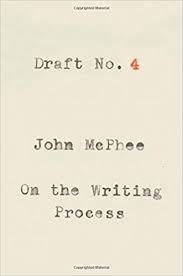
Key Insights & Memorable Quotes
Below are the most popular and impactful highlights and quotes from Draft No. 4: On the Writing Process:(Showing 20 of 20)
No one will ever write in just the way that you do, or in just the way that anyone else does. Because of this fact, there is no real competition between writers. What appears to be competition is actually nothing more than jealousy and gossip. Writing is a matter strictly of developing oneself. You compete only with yourself. You develop yourself by writing.
A piece of writing has to start somewhere, go somewhere, and sit down when it gets there.
It doesn’t matter that something you’ve done before worked out well. Your last piece is never going to write your next one for you.
Sometimes in a nervous frenzy I just fling words as if I were flinging mud at a wall. Blurt out, heave out, babble out something—anything—as a first draft.
It takes as long as it takes.
Another mantra, which I still write in chalk on the blackboard, is “A Thousand Details Add Up to One Impression.” It’s actually a quote from Cary Grant.
Writers come in two principal categories -- those who are overtly insecure and those who are covertly insecure.
Writing is selection. Just to start a piece of writing you have to choose one word and only one from more than a million in the language. Now keep going. What is your next word?
I’d much rather watch people do what they do than talk to them across a desk.
A lead is good not because it dances, fires cannons, or whistles like a train but because it is absolute to what follows.
If you lack confidence in setting one word after another and sense that you are stuck in a place from which you will never be set free, if you feel sure that you will never make it and were not cut out to do this, if your prose seems stillborn and you completely lack confidence, you must be a writer. If you say you see things differently and describe your efforts positively, if you tell people that you “just love to write,” you may be delusional. How could anyone ever know that something is good before it exists?
Ideas are where you find them
For nonfiction projects, ideas are everywhere. They just go by in a ceaseless stream.
Don’t assume that everyone on earth has seen every movie you have seen.
You find your lead, you build your structure, you are now free to write.
The dictionary definitions of words you are trying to replace are far more likely to help you out than a scattershot wad from a thesaurus.
The lead—like the title—should be a flashlight that shines down into the story. A lead is a promise. It promises that the piece of writing is going to be like this. If it is not going to be so, don’t use the lead.
Since you may take a month, or ten months, or several years to turn one idea into a piece of writing,
demonym
Norman Maclean called A River Runs Through It fiction, and the word “fiction” appeared in the book’s front matter. A River Runs Through It was autobiographical fact in nearly all aspects but one. For private reasons, the author had shifted the site of his brother’s murder and, being Norman Maclean, considered that change and others quite enough fabrication to disqualify the text as nonfiction.


